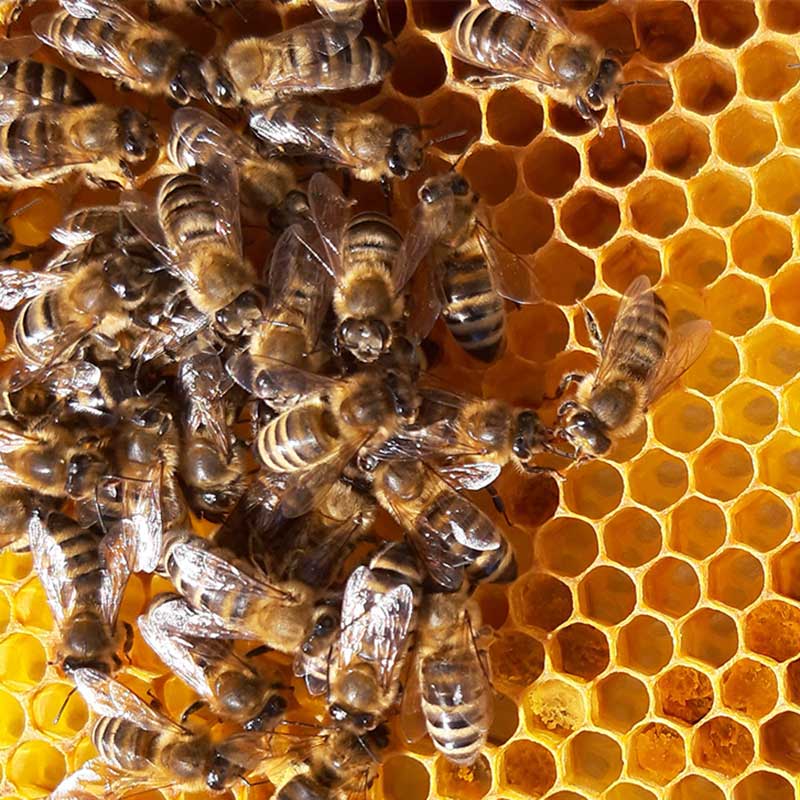Coins and honey directly from Münze Österreich.
Why talk when you can dance instead? That’s how bees communicate. Their ‘waggle dance’ is a wonderful phenomenon and one that not only bees themselves benefit from. Other living creatures, including humans, do so too, because bees are a vital part of our ecosystem: their welfare is our welfare.
In the early 20th century, the unusual behaviour of honeybees piqued the curiosity of behavioural scientist Karl von Frisch (1886–1982), who grew up in Vienna. He was intrigued by the way the insects sometimes move in circles and perform a figure of-eight ‘waggle dance’. In time, von Frisch discovered that when doing so, bees are in fact ‘speaking’ a dance language to the other members of their hive to show them where they can find pollen and nectar. Although originally disputed by other scientists, von Frisch’s theory eventually earned him the Nobel Prize in 1973.
The ‘round dance’, in which bees walks in a circle, turn around, then walk the same circle in the opposite direction, tells watching bees that there are flowers with pollen in the immediate vicinity of the hive. When the food source is further away, the waggle dance tells the watching bees how far it is and in which direction they can find it. A representation of the waggle dance is shown in the background on the coin’s reverse, behind a bee in flight and above a decorative honeycomb deign. Not just for nature lovers, whether in copper or silver, Waggle Dance makes for a great spring or Easter gift.
Bees are among the most important pollinators – their work is worth its weight in gold. To contribute to their preservation and celebrate nature in the city, we have established a bee colony in our leafy courtyard.
Honey from Heumarkt
Around 100,000 bees live behind the facade of our historic headquarters on Heumarkt, central Vienna, and the number is growing all the time. From there they can take advantage of all the fantastic flowers and plants in the surrounding parks and gardens, such as the Stadtpark, just across the street.
Busy bees
More bees mean better pollination and thus more food for all types of living things. Bees have a radius of action of up to three kilometres, which means that ours fly as far as the Prater, home of Vienna’s iconic Giant Ferris Wheel, to collect pollen.
Nice and gentle
Our bees are known as Carinthian bees, a naturally evolved sub-species of the western honeybee (Apis mellifera). Simply called ‘carnica’ by beekeepers, they are considered docile.
Sustainably produced
Lovingly prepared and packed at Gernot Gangl's apiary in the leafy outskirts of Vienna, our honey comes both in 1.6 oz (50 g) and 8 oz (250 g) jars. Liquid gold from Heumarkt – delicious!
